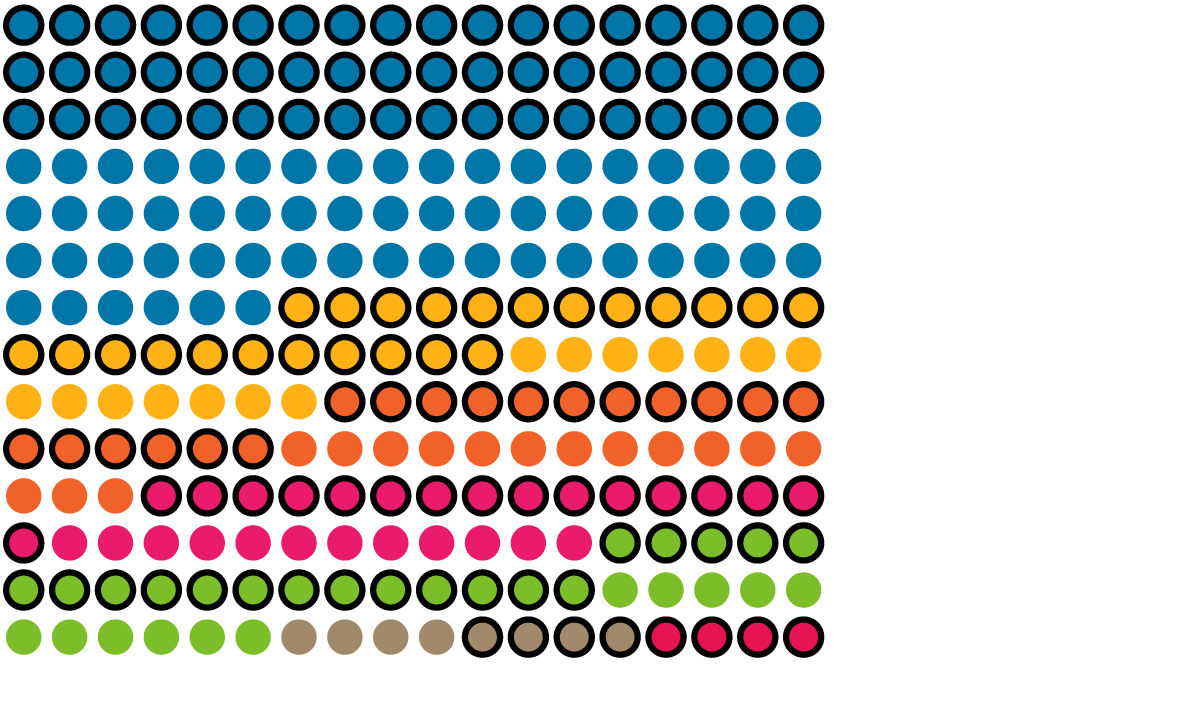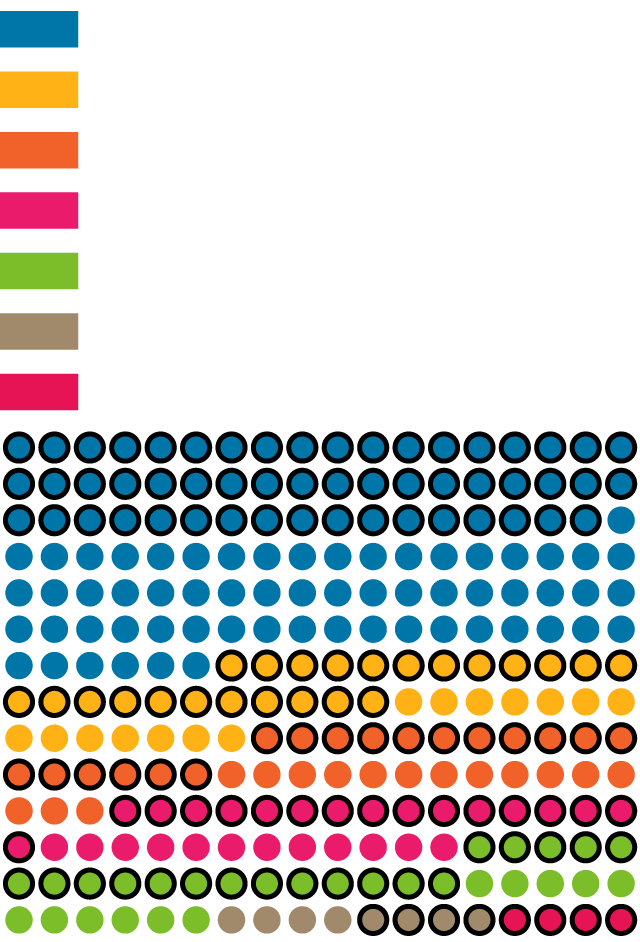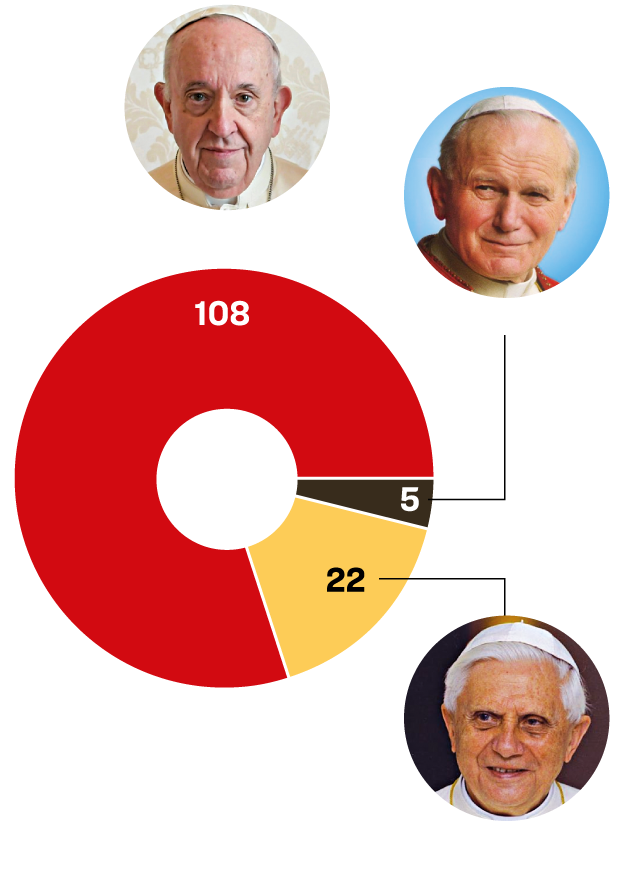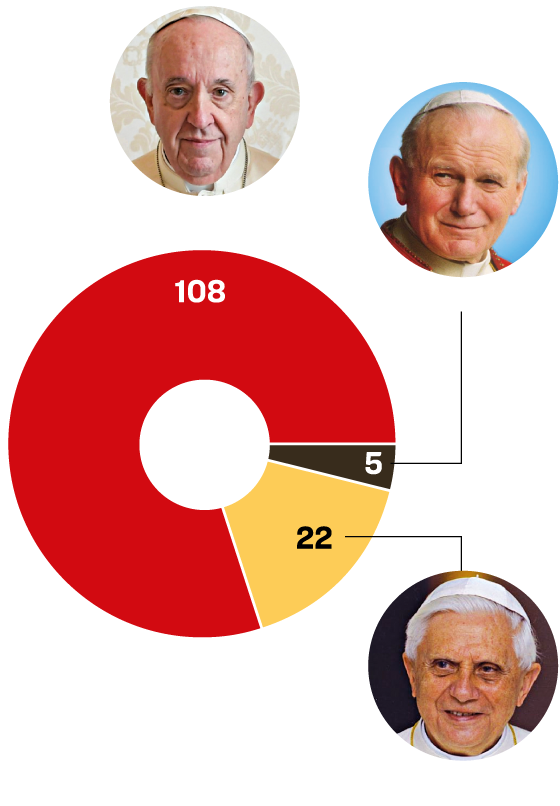Five minutes and three lunches in one day to elect the new pope
Before Francis' funeral, many meetings have already taken place to begin to weave the balances of the conclave that will decide the leader of the Catholic Church.

BarcelonaOn Tuesday, one of the planes connecting Madrid and Rome was full of priests. Also traveling incognito, in civilian clothes, was a Spanish cardinal, trying to avoid detection. He was going to Italy to bid farewell to Pope Francis, but also to participate in the election of the future leader of the Catholic Church. Rome is abuzz these days. Three-way talks, the occasional clandestine meeting, and whispers in the shadows of the cardinals who will elect the new pontiff. As editor Ignasi Moreta explains, Cardinal Narcís Jubany participated in the two conclaves held by Pope John Paul I and John Paul II in 1978. During those days, some cardinals even had lunch three times in one day. And it is now, in the days leading up to the funeral, that alliances are beginning to form. Sotto voce. Although the election is in the hands of the 135 cardinals under the age of 80, the rest of the members of the College of Cardinals, who are the most experienced, also participate in these days of meetings and agreements. "They have lived through many things, they are influencers, are the ones who will say don't do this or look here," says journalist and professor specializing in religion Míriam Diez.
After the funeral of Jorge Mario Bergoglio, the general congregations begin. These are meetings of all the cardinals - including those over 80 years old - for the one over 80 years old. "You can't say any names, you have to say the profile of the pope you are looking for," explains journalist and parish priest of Santa María del Taulat, Francesc Romeu, who describes the presence of cardinals at each conclave. potato makers, cardinals who know how to find good candidates. The Italian Carlo Maria Martini was a great example. "He dominated the last two conclaves and the last one without being there"—he had died a year earlier—relates Romeu.
During the congregations, anyone who wishes can ask to speak. These are brief reflections, lasting five minutes, but essential for getting to know each other, since they come from all over the world. "Bergoglio's five minutes were decisive. Many were impacted; he captivated many people," relates Father Armand Puig. Oratory skills are vital. "Above the currents, which exist, the ability to seduce people and convey, in his short time, a powerful and attractive message for the future of the Church prevails. It's difficult to be pope after Bergoglio without having charisma," reflects Puig.
Isolated from the world
The conclave will be held in the Sistine Chapel. Voting cardinals will enter and remain completely isolated. They cannot receive any messages or communicate with the outside world while they take the four votes that can occur each day. One hundred and ten of the 135 cardinals were chosen by Francis. This makes, in theory, continuing his legacy the most feasible option. "The data facilitates continuity; there is no going back," Romeu points out, but at the same time qualifies this supposed homogeneity, since most "do not know each other" because they come from 71 countries and are driven by different logics. Furthermore, as the Montserrat monk Josep Miquel Bausset adds, they are no longer "archbishops of large dioceses" as before, accustomed to political and diplomatic matters, but now the "person" is chosen, not the importance of the "city." Even language may be paramount. "Previously, many were Italian and European, they had common elements, such as language; now, linguistic areas can be an element to take into account," warns Professor Ignasi Fernández Terricabras. "The conclave is a challenge to the dominant culture, especially in the West, for different times of immediacy and secret components that surprise," explains Montserrat monk Ignasi Fossas.
In recent days, the debate has revolved around two opposing currents: conservatives and progressives, a "reductionist" dichotomy, according to Daniel Palau, dean of the Faculty of Theology of Catalonia, who points out that there are many "nuances" in these supposedly two large blocs and that they respond to dynamics that can be difficult to overcome in Europe. "Perhaps outside Europe, they are not as concerned about issues such as the role of women or morality," says Fernández Terricabras, who warns that the conservatives are "more organized" because they have been responding to Bergoglio's policies for years. "On their own, they cannot obtain a two-thirds majority; they will have to negotiate with other small groups or cardinals willing to give their vote to a more conservative candidate," predicts Fernández Terricabras, who believes that the religious orders will have little impact, and only figures linked to Opus Dei or the Argentine Legionaries of Christ will be able to do so. The Archbishop of Tarragona, Joan Planellas, expresses a similar sentiment: there is a minority of cardinals who are "super-conservative" or "opposed" to Francis's postulates and, therefore, have no "road map."
Africans and Americans
Among the least reformist sector is the American Church, but also the majority of African cardinals, led by Robert Sarah. propose a candidate, and once they see that the numbers don't add up, "a deadlock will open in the search for a consensus candidate, neither too conservative nor too progressive."
For Bausset, despite the fact that the reactionary sectors have wanted to "pull the handbrake, Francis's line is likely" that also believes him "impervious to social change."
This opposition to Bergoglio has had a strong media presence because "he harshly criticized neoliberalism and consumerism: he said that this economy kills," explains theologian Francesc Torralba, who believes, however, that this anti-French current has more weight in "certain American lobbies."
More forceful is the journalist Vicenç Lozano, author of Vaticangate, which points to a "plot and dirty war" against Francis by the traditionalist sector allied with "the extreme right" and Donald Trump. According to Lozano, dossiers prepared by Catholic foundations in the United States are already circulating these days to discredit potential reformist popes with cases of corruption, reprehensible investments, and sexual abuse in the closet. The pressure from the US economic power and its ecclesiastical branch is "extremely strong," and they play on the fact that the Vatican's finances are heavily dependent on American contributions. This, for Lozano and Díez, opens the possibility of a schism depending on what emerges from the conclave. A schism by the traditionalist wing of the US, but also by the opposite extreme: the radical progressive Germans.
Now, not everything is driven by the progressive-conservative logic, which also has nuances. Bergoglio's courageous discourse on social issues, immigration, and war has not always been as forceful when it comes to morality. "There will be a faction that will say we're done talking about the vulnerable, the poor, migration... we have more to do, such as doctrine, order, truth, and liturgy," adds Díez. "Some would like a more ritualistic and liturgical Church, less involved in social issues," summarizes Torralba. Nun Margarita Bofarull exemplifies this with an anecdote. Before an audience with the Pope in the Clementine Chapel, she overheard a conversation between two people who were criticizing the social aspect. "Let's see if he'll talk to us about the poor again," they whispered. "The Pope has taken many privileges. It's not understood as service but as power," says Bofarull.
The example of 2013
To understand what could happen in the conclave, Puig refers to the example of 2013, when Bergoglio was elected, who was the 44th favorite at the London bookmakers. "Francis has appointed the majority of cardinal electors, but they are looking for the person who can best serve as pope. We must look back in history and see what happened in 2013. It was very illustrative. Bergoglio is a modern, progressive pope, but when he emerged, what did he represent? He was a conservative, and a reformer emerged by an overwhelming majority," he says. On the other hand, in 2005, when Ratzinger emerged, Bergoglio was among the leading candidates, but he ended up giving up his vote to elect Benedict XVI.
At stake in the 2025 conclave is the continuity of Francis' work.Pontiff means bridge builder. We must carry forward the reform that Francis began and has not completed. Canon law must be reformed; Bergoglio did not touch a comma of the texts; his gestures must be valued, but they must be translated into changes in legislation," says Professor Díez, who points to two key issues for the new papacy: the role of women in the Church, which is "unavoidable," and the situations they call marriage, non-binary couples, the celibacy of priests, or the presence of lay people in decision-making
Ignasi Moreta sees it similarly, believing that Francis "generated expectations that he did not meet" and this caused a "strong disappointment" so that the music is taken to "fear." It would translate into a change of the lyrics, that is, of the catechism. "If it only remains in gestures, it is demagoguery," he concludes.
For Puig, the most important agenda for the new pope is world peace, and for the Church to be a key player in curbing conflicts and rearmament. "The only serious voice that has said no to war has been Pope Francis," he concludes, while praising Bergoglio for allowing green shoots to emerge within Catholicism and combating the "desertification of faith in Europe." After many years of decline, interest in the Church is returning, experts emphasize. Monk Bausset believes we must continue to focus on the environment, fraternity, and remain the Church of the poor and the peripheries to welcome everyone, while Father Palau emphasizes synodality (involving all Christians in decisions), poverty, intelligence, and, finally, artificial intelligence.
The main favorites
All of these challenges will have to be addressed—or avoided—by the new pope. Among the names that sound the most, especially the Vatican Secretary of State, Pietro Parolin, has emerged. He is a reliable 70-year-old figure with a diplomatic career, who speaks languages and has participated in the delicate relations between the Holy See and Israel and North Korea, and has mediated between Russia and Ukraine. For Lozano, he could be a consensus figure accepted by conservatives, with whom he has ties, because "he has blessed Francis's reforms, but has not vehemently defended them."
More progressive is the Filipino Cardinal Luis Antonio Tagle, a 67-year-old figure with charisma and a reformist vision. Another option along the same lines, with a strong emphasis on social issues, would be the Italian Matteo Maria Zuppi, president of the Italian Episcopal Conference and linked to the lay community of Sant'Egidio. Also close to Francis are the Archbishop of Luxembourg, Jean-Claude Hollerich, a Jesuit, and the 59-year-old Portuguese José Tolentino de Mendonça, an intellectual who also writes poetry. Other names include the Archbishop of Budapest, Péter Erdő; the Bishop of Stockholm, Anders Arborelius; and the Maltese Cardinal Mario Grech.
On the other side, Fridolin Ambongo, a cardinal from Congo who criticized Francis's reforms such as the blessing of gay couples, and Robert Sarah, an African leader of the more traditional wing, stand out, along with the American Raymond Leo Burke. For Romeo and Lozano, such prominent figures who have lost their tempers with harsh criticism of Francis, they have no options. Míriam Díez also provides two additional parameters to take into account: "They will look for someone from afar, uncontaminated, and they will not choose someone with 30 years of pontificate ahead of them." And the priest and director at heart, Valentí Miserachs, who has lived in Rome for more than 60 years, warns about all the names that come up, recalling a Roman proverb: "Whoever enters the conclave as pope, leaves as cardinal."






